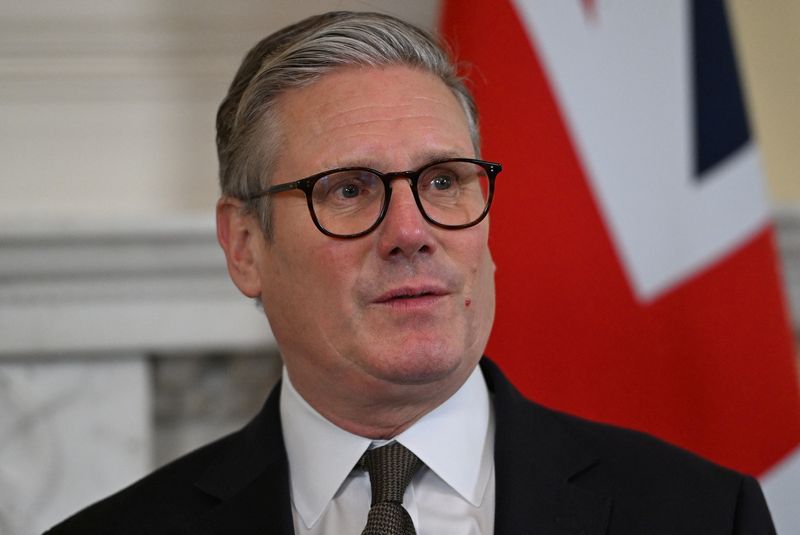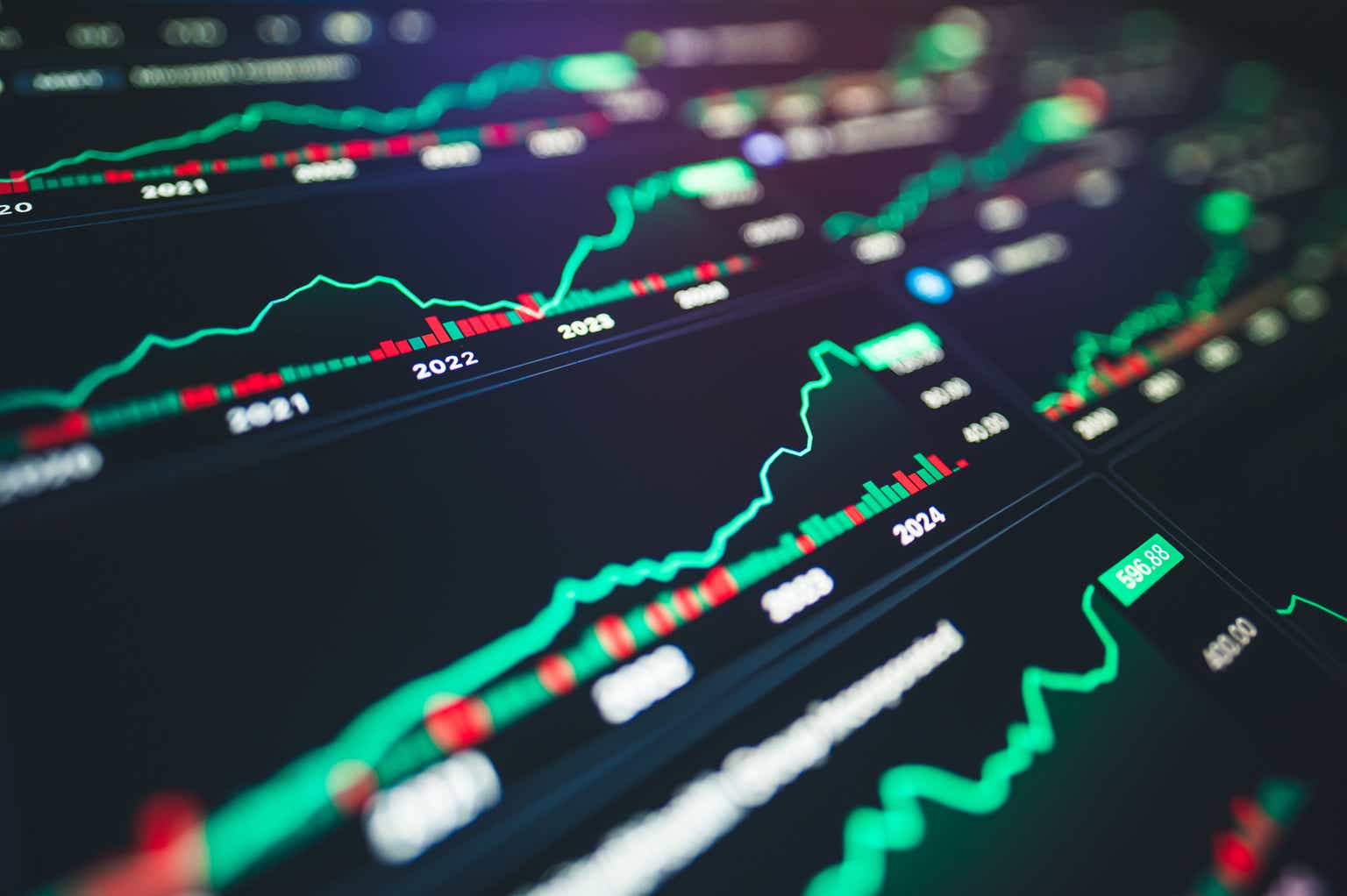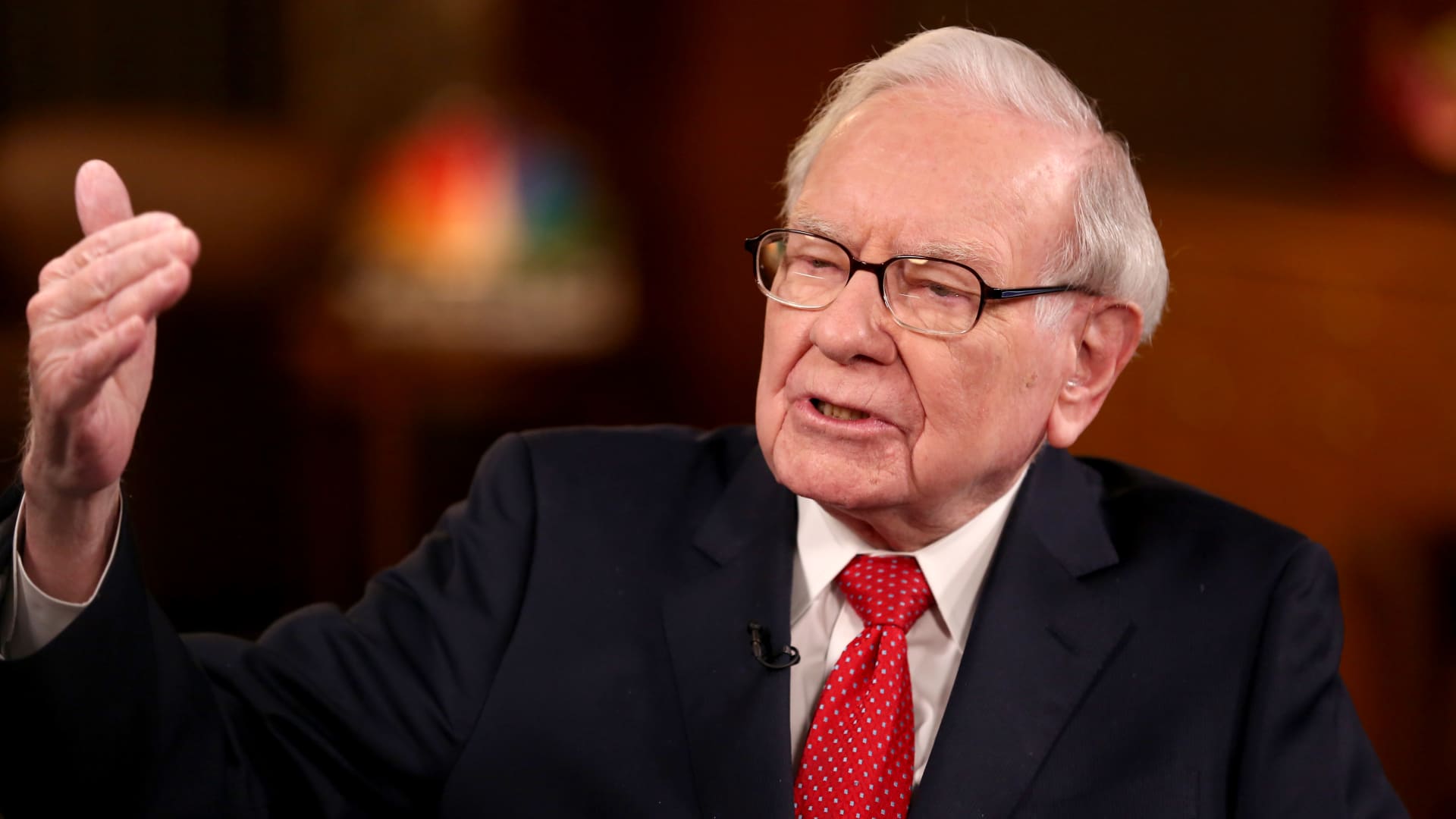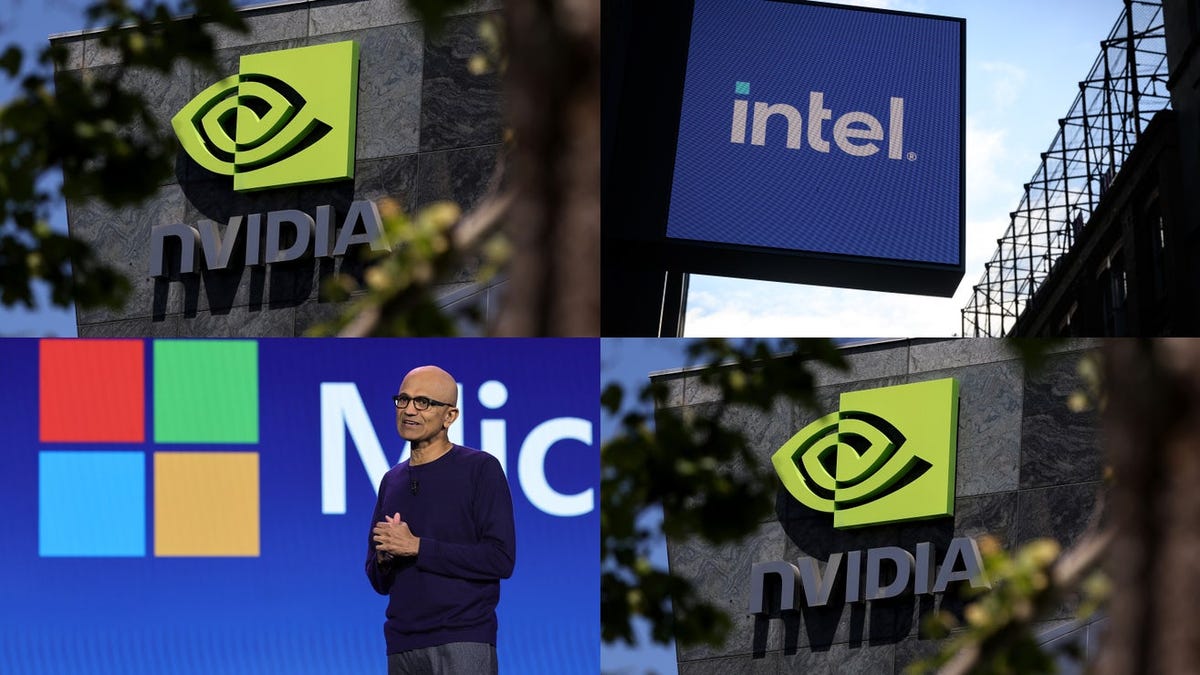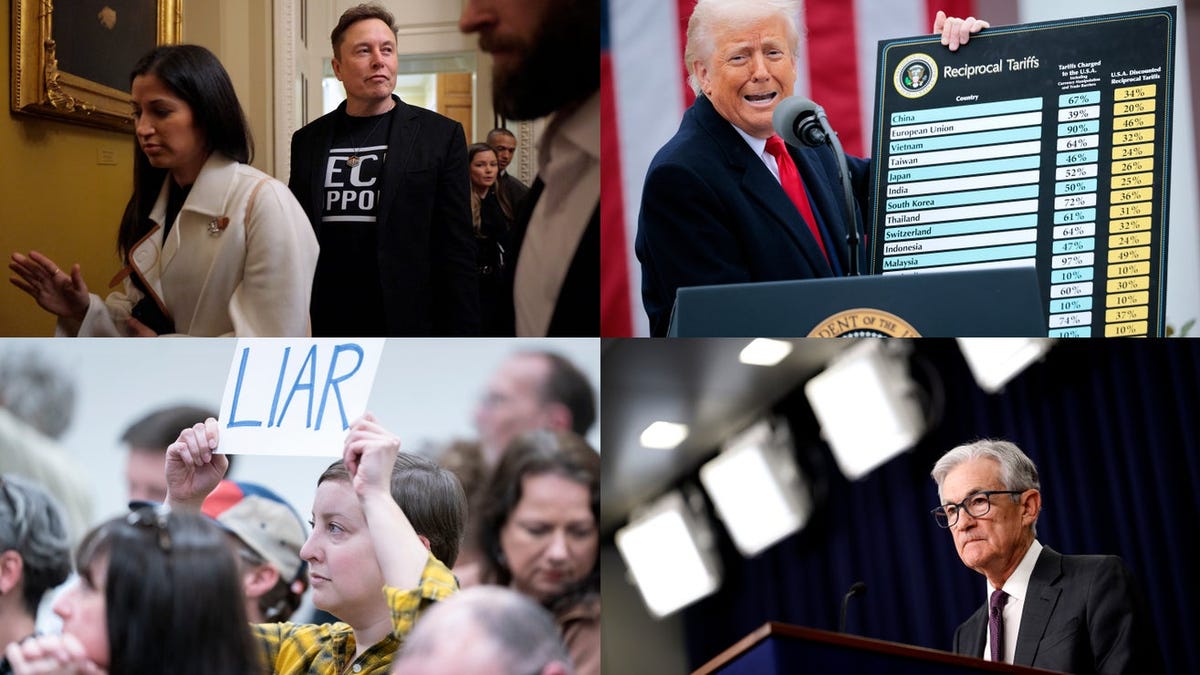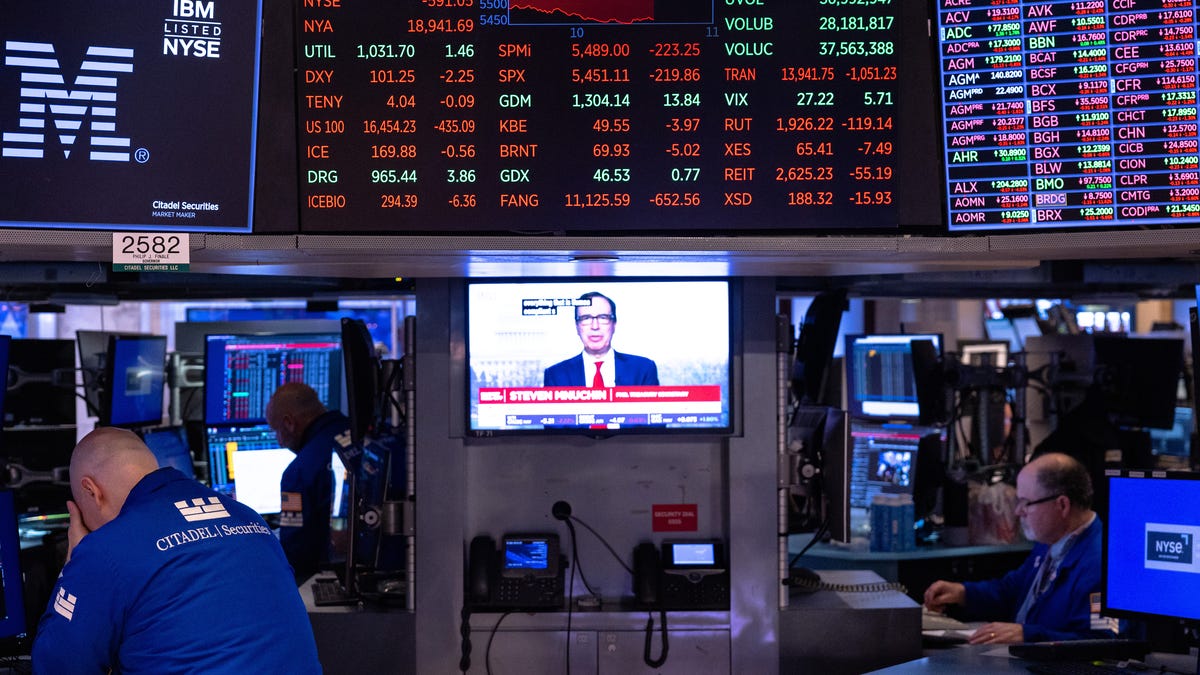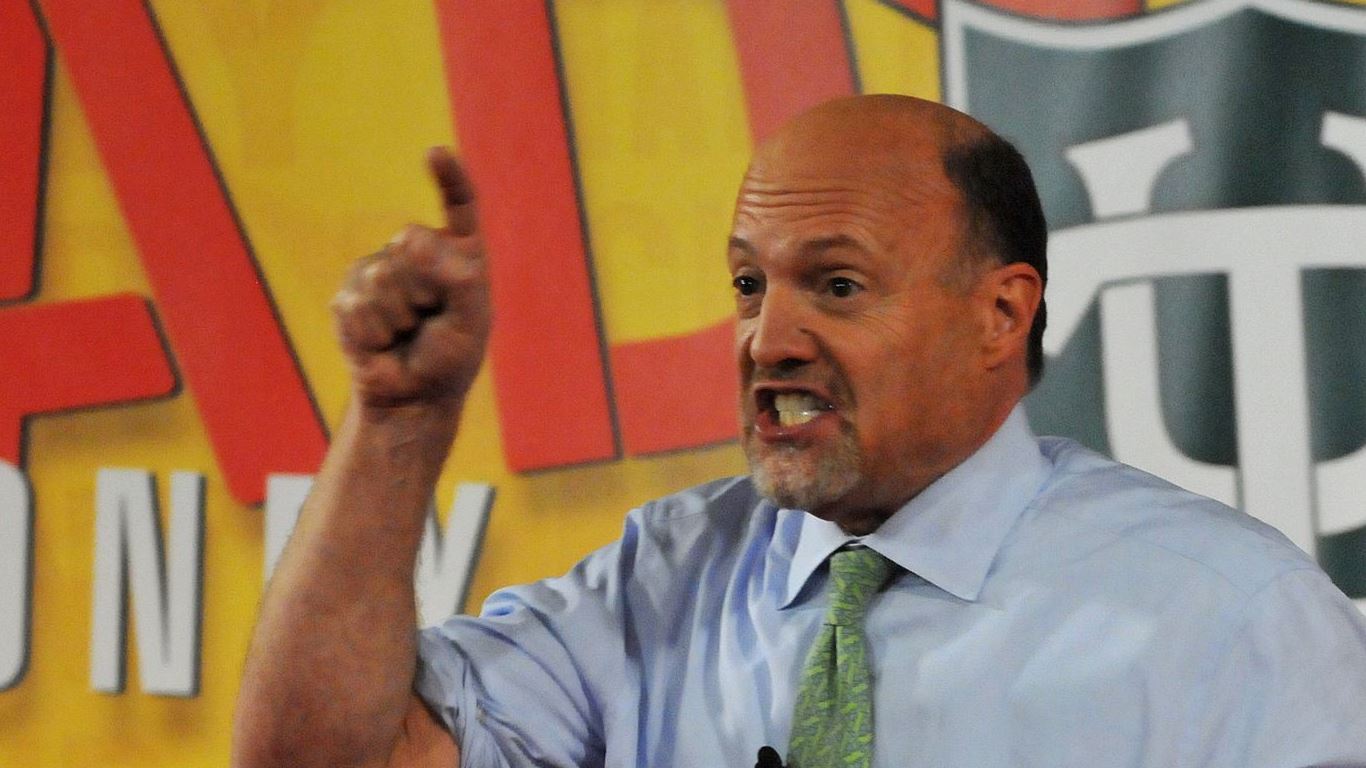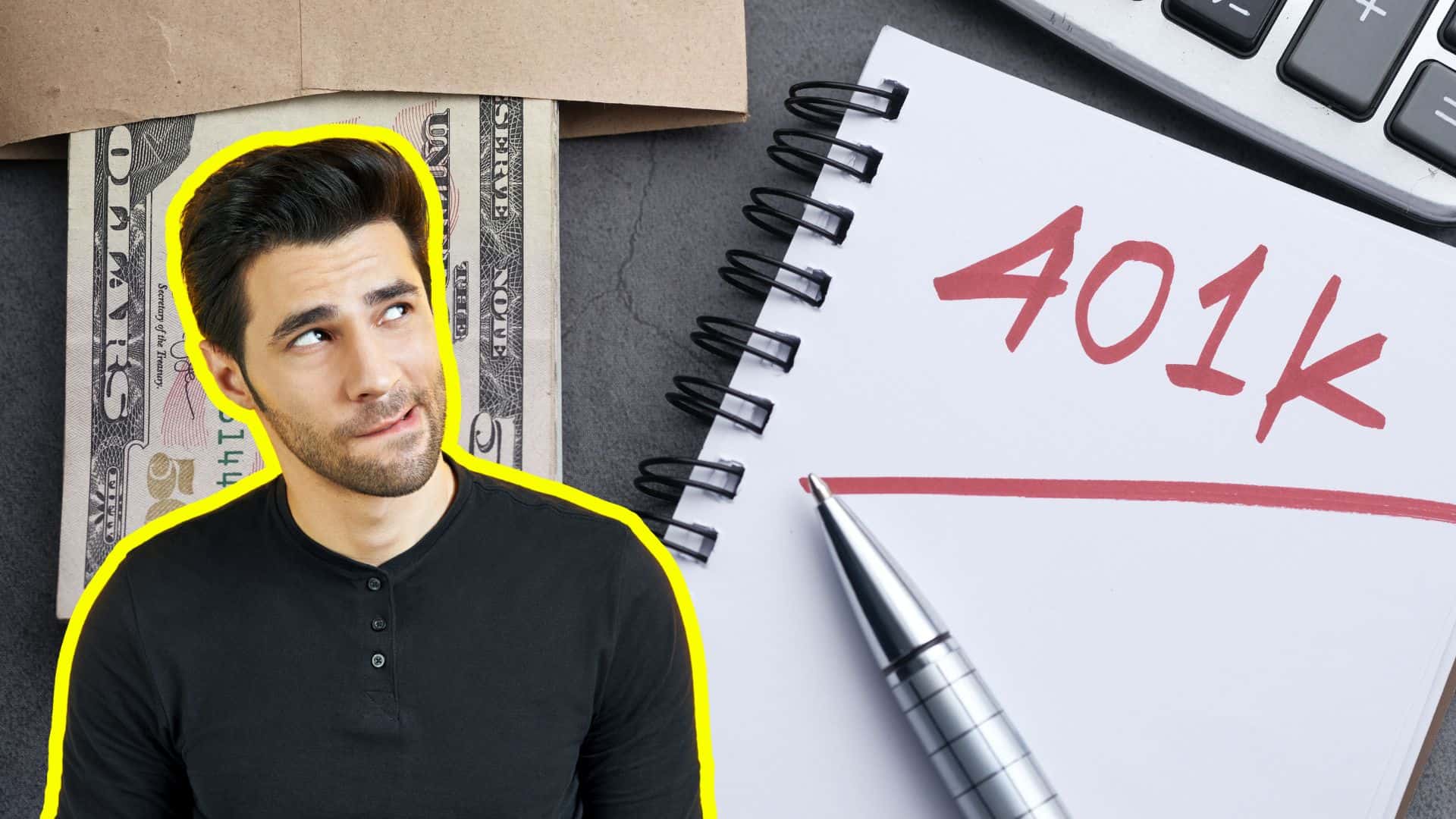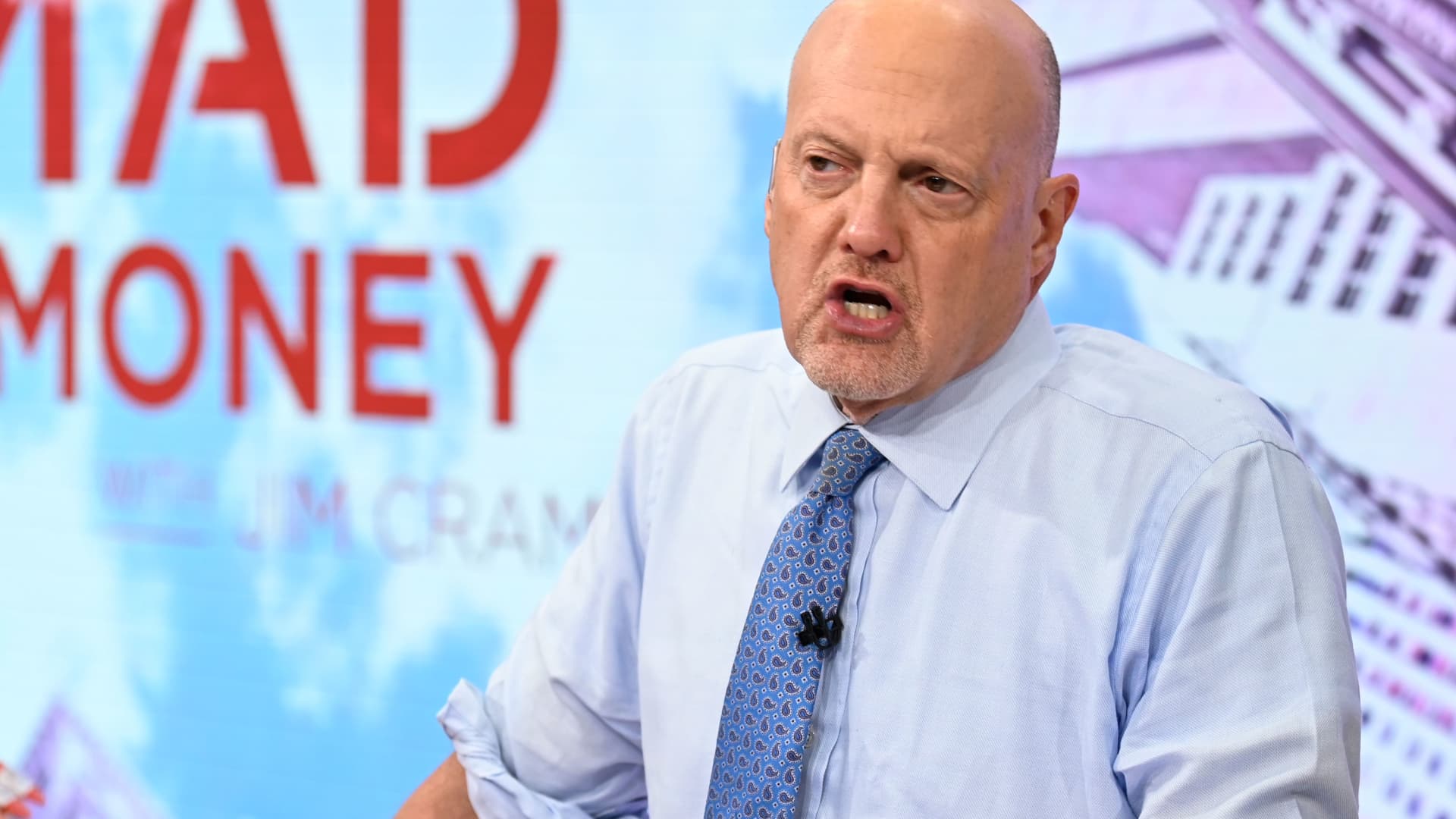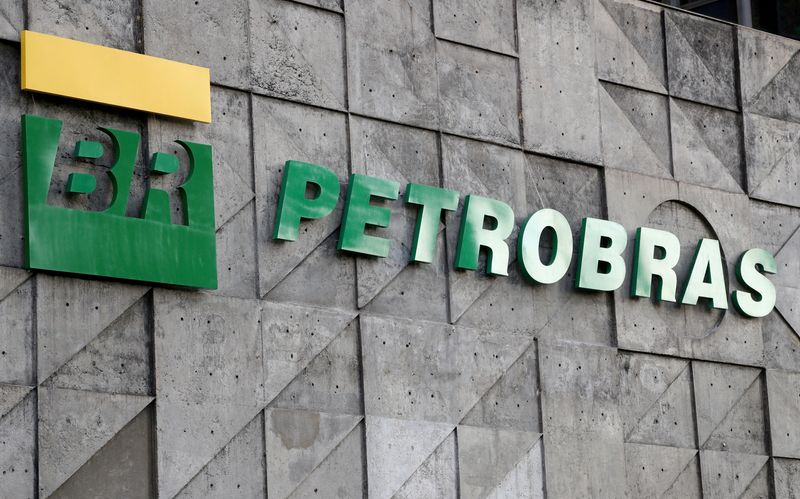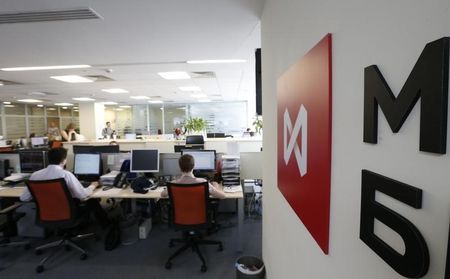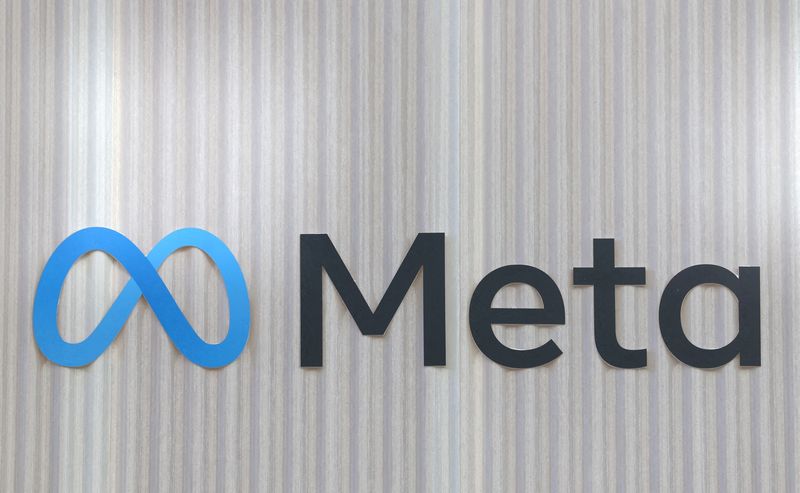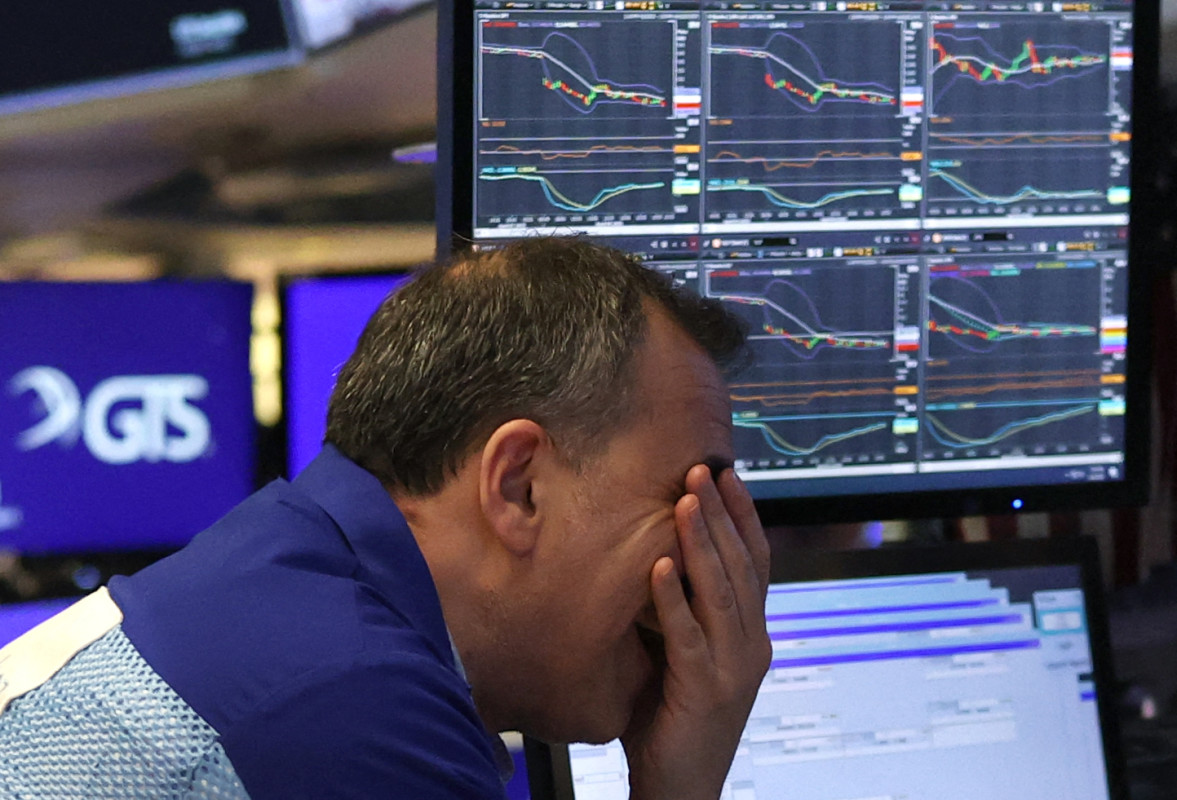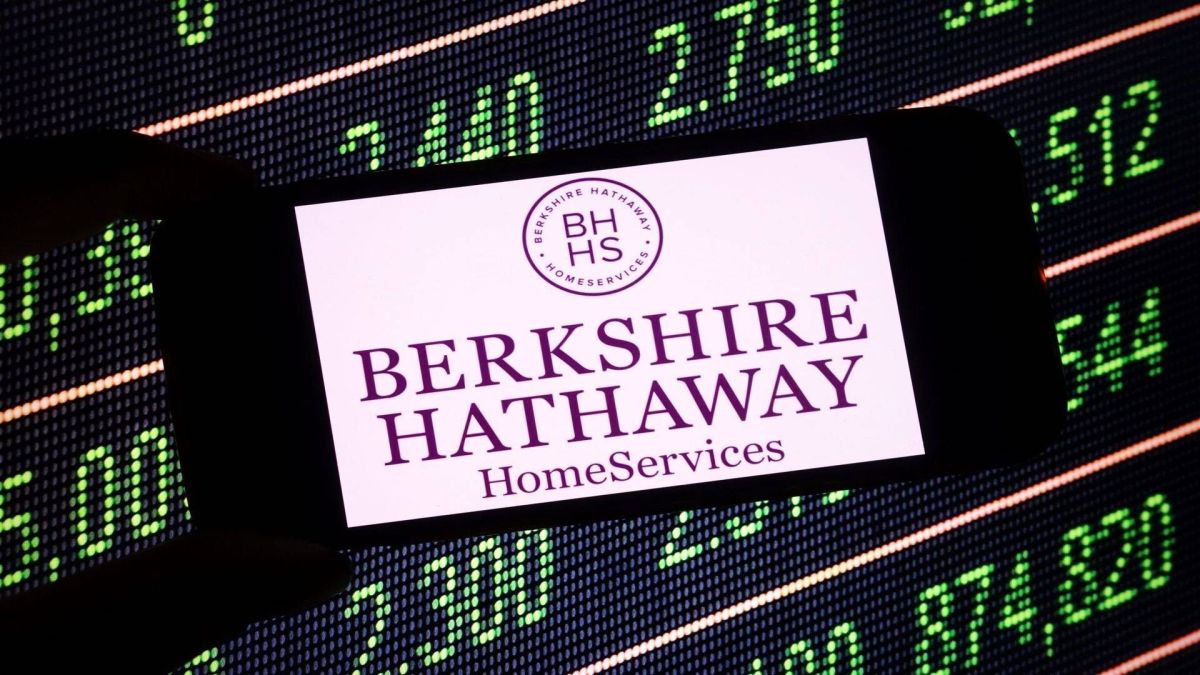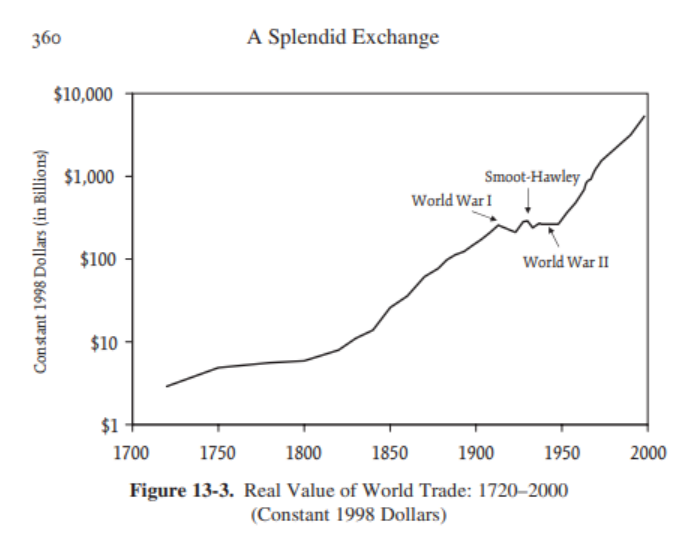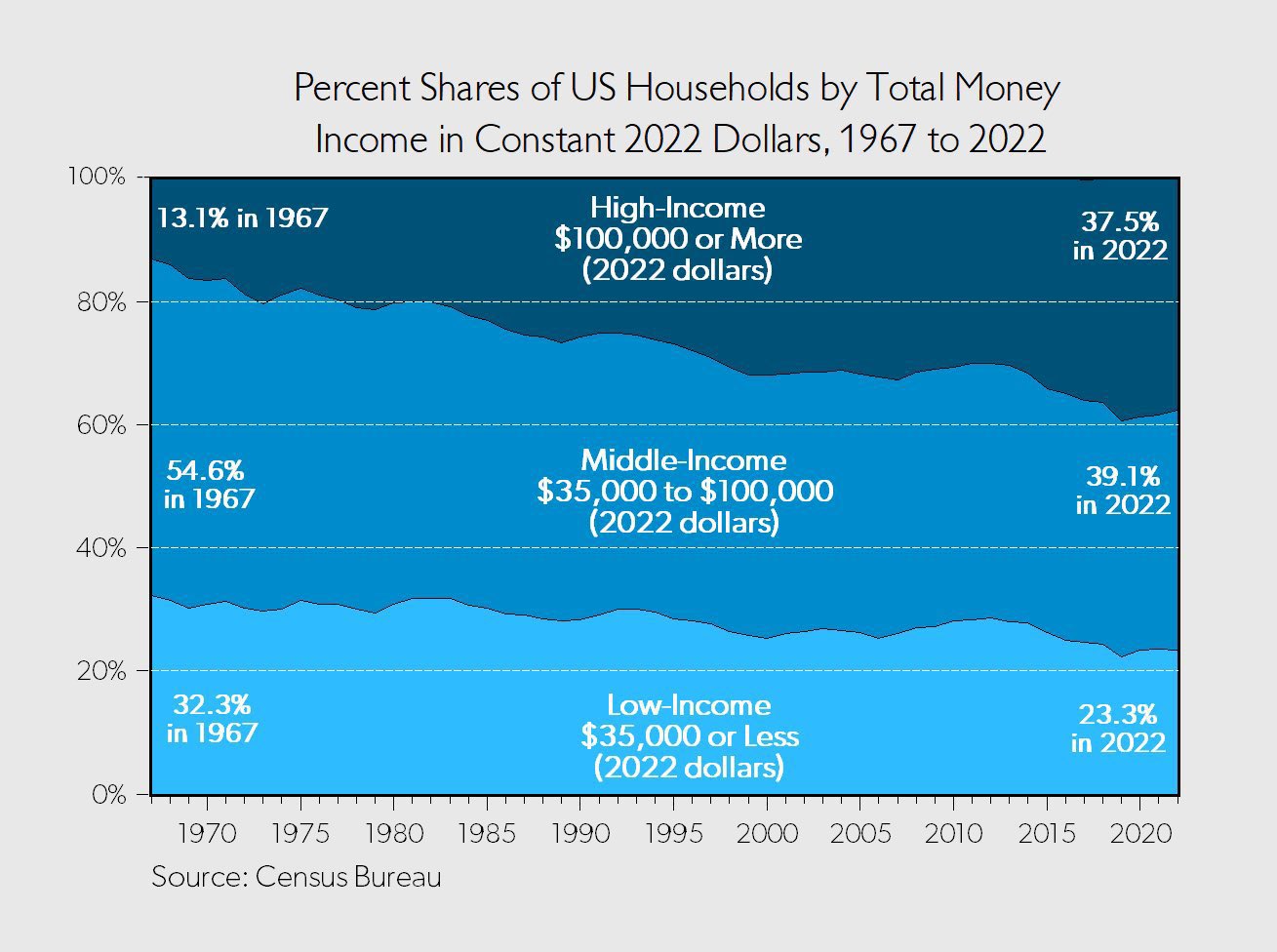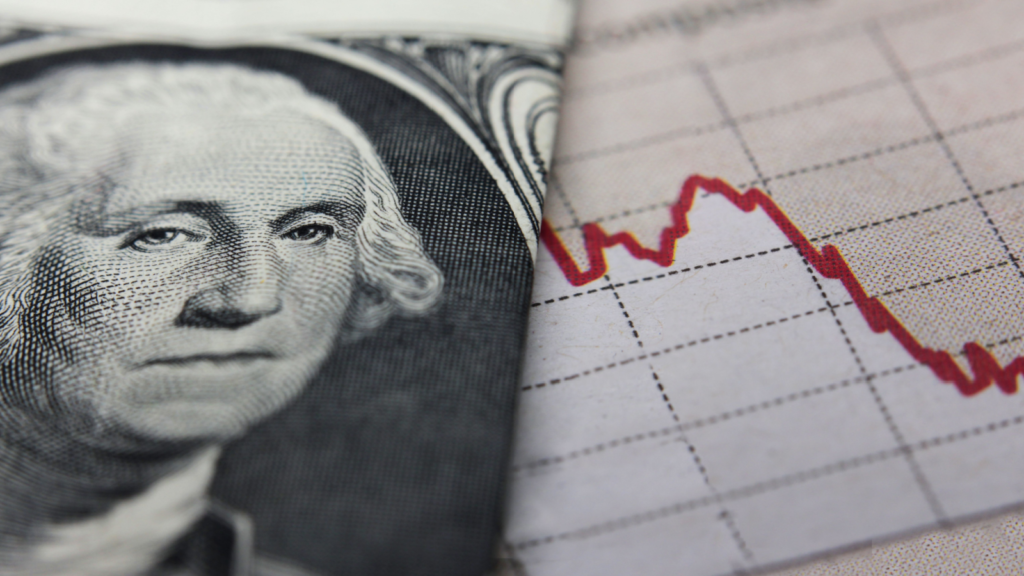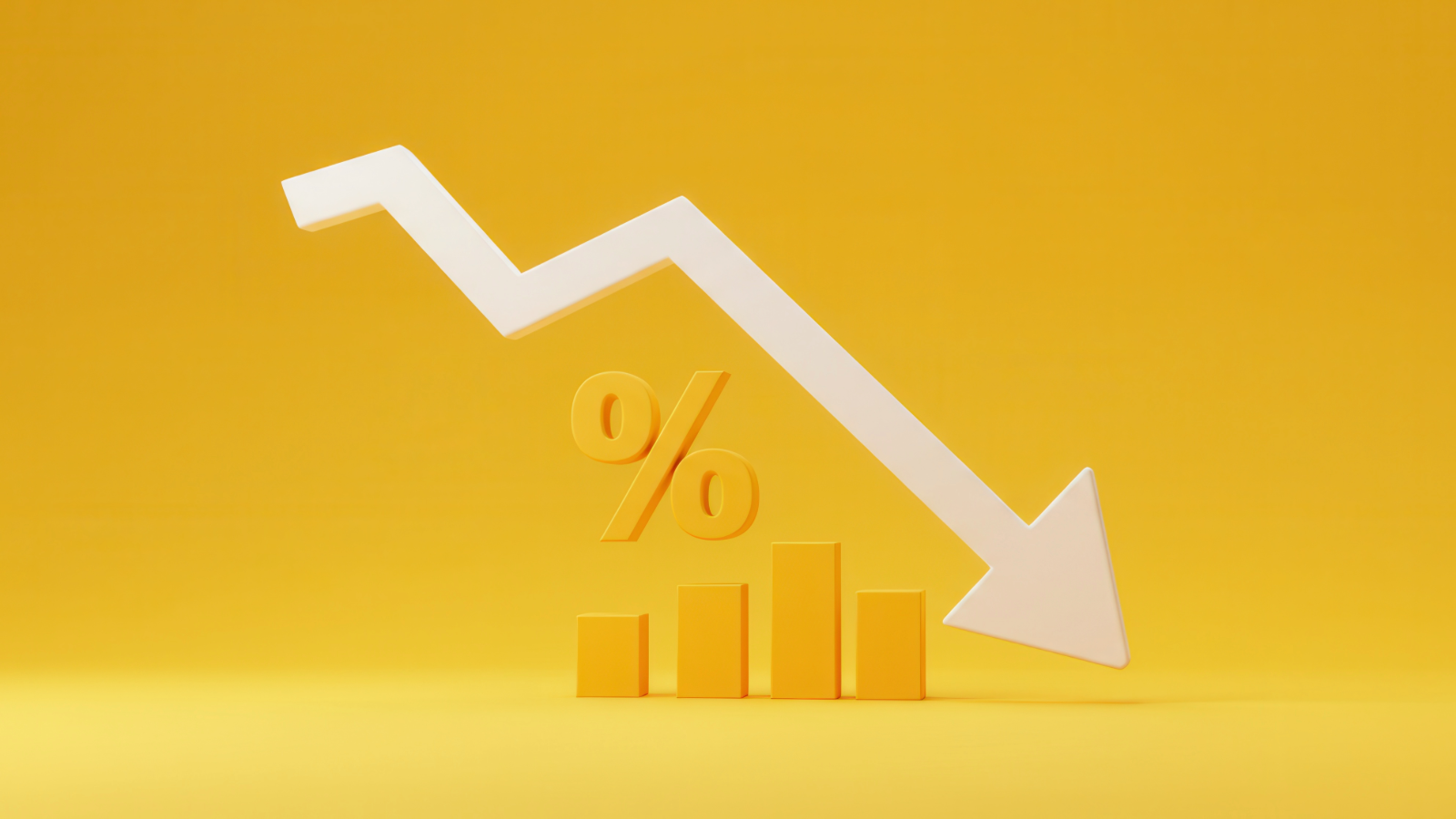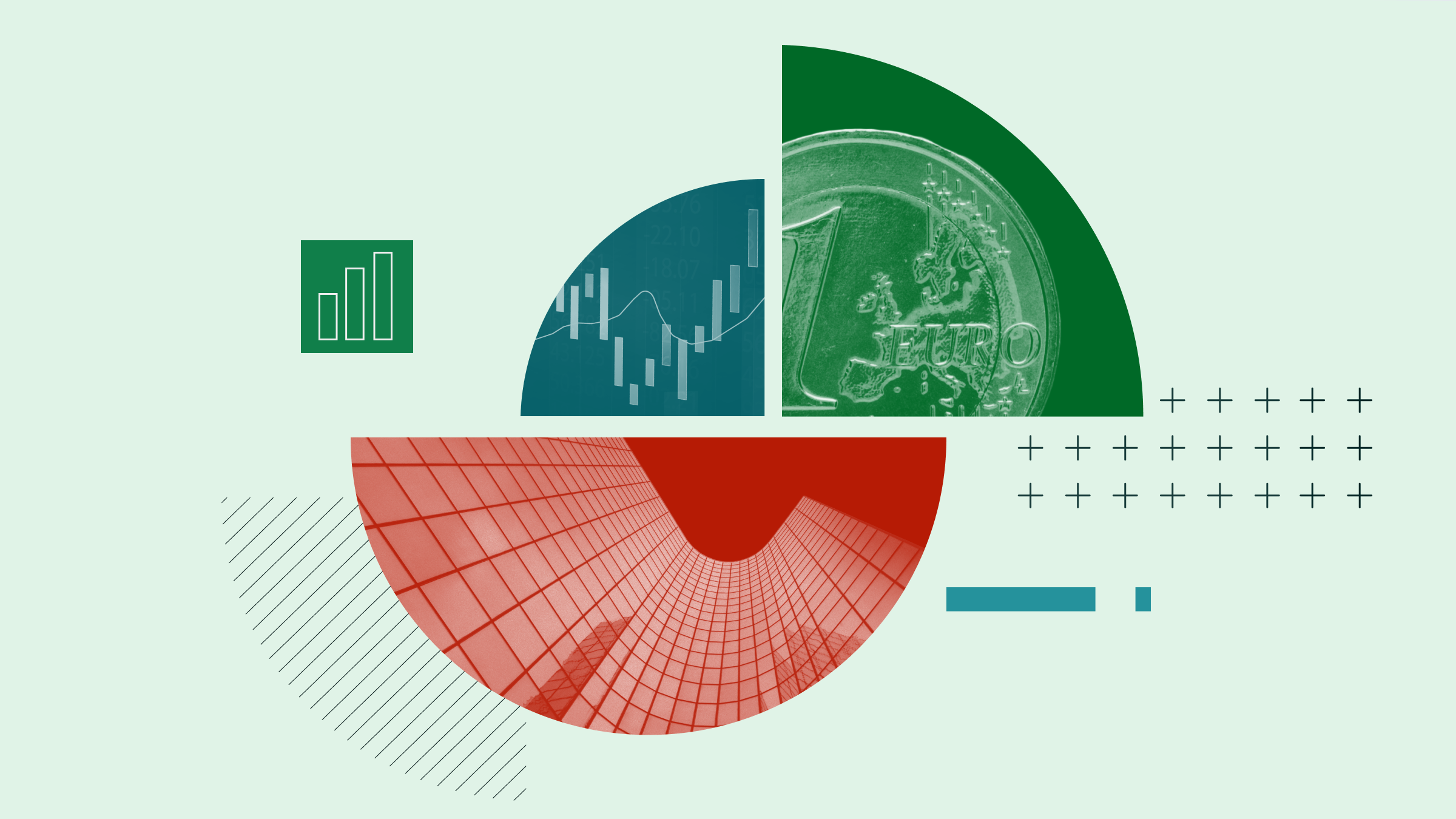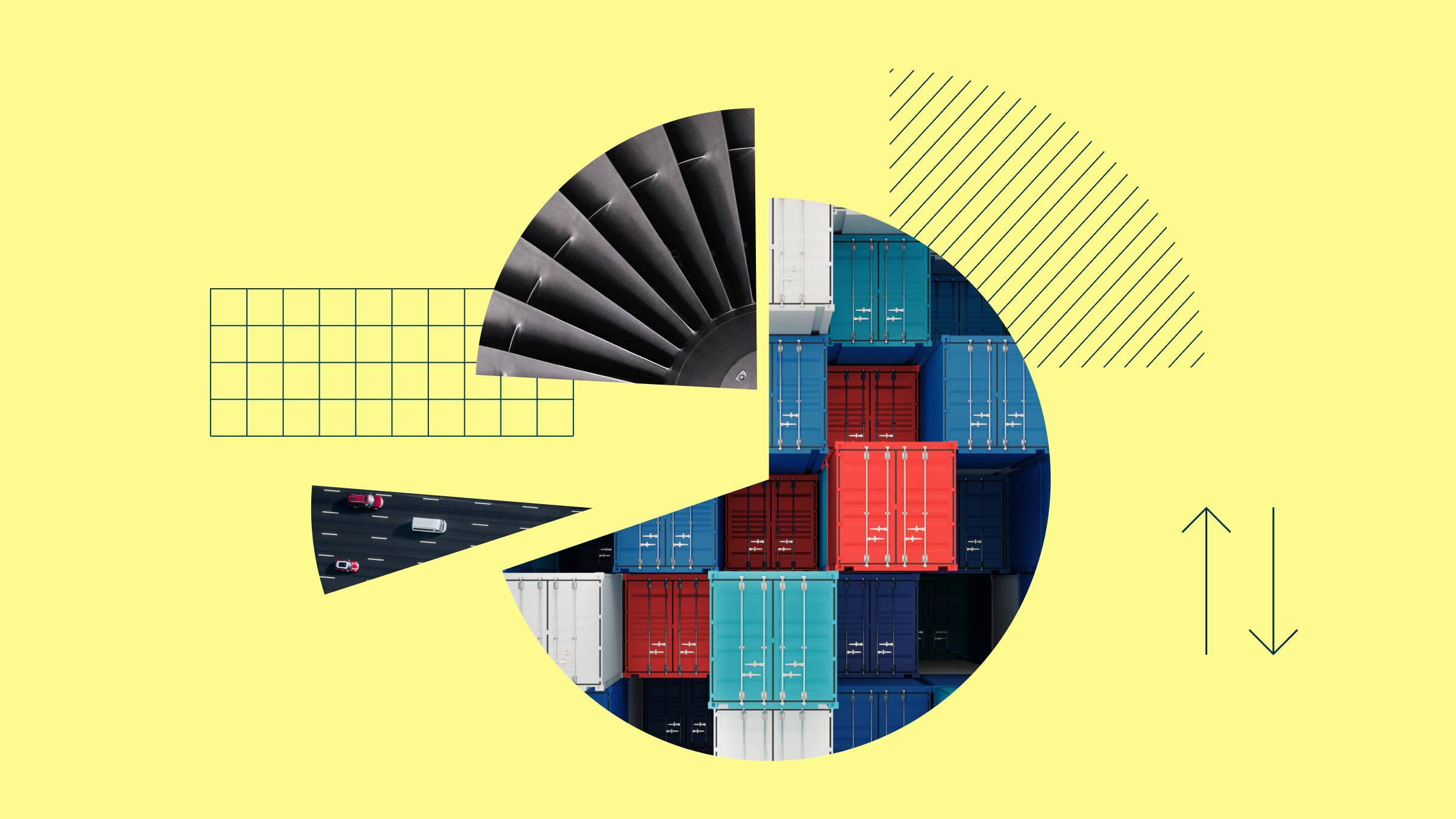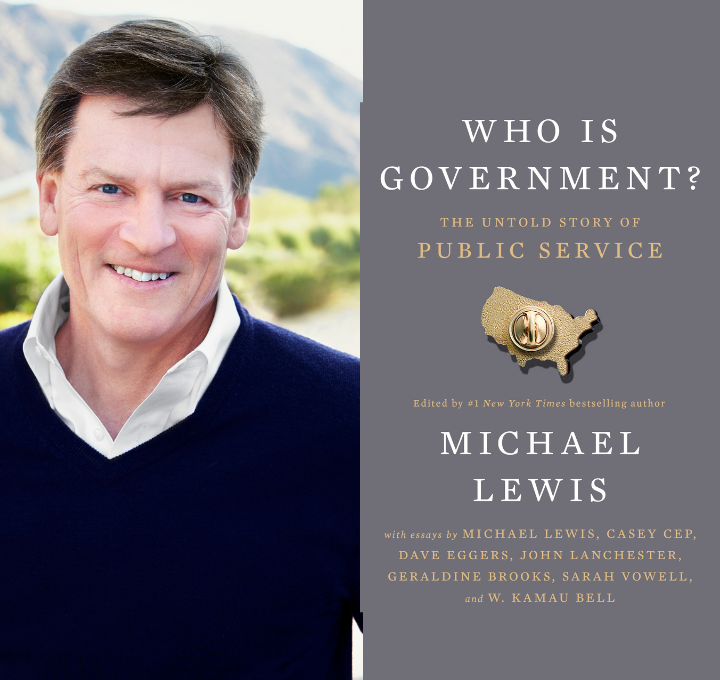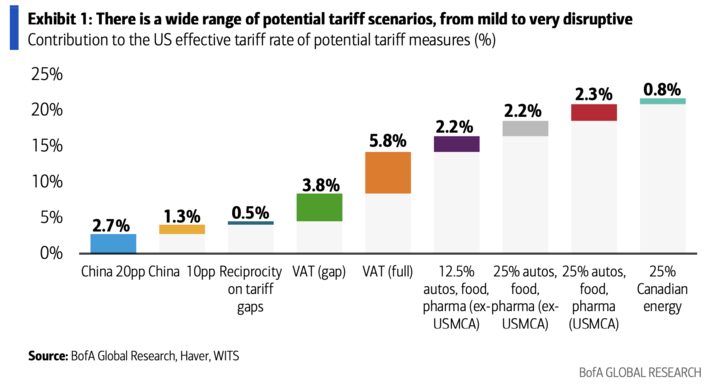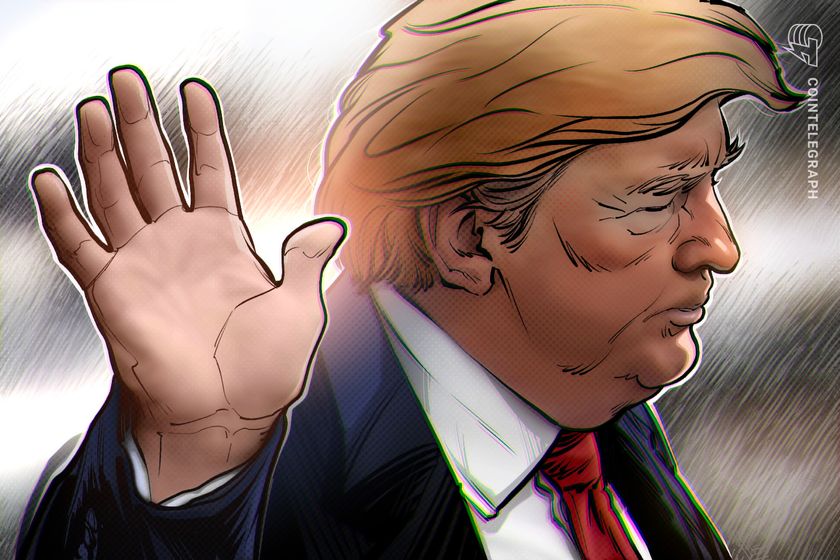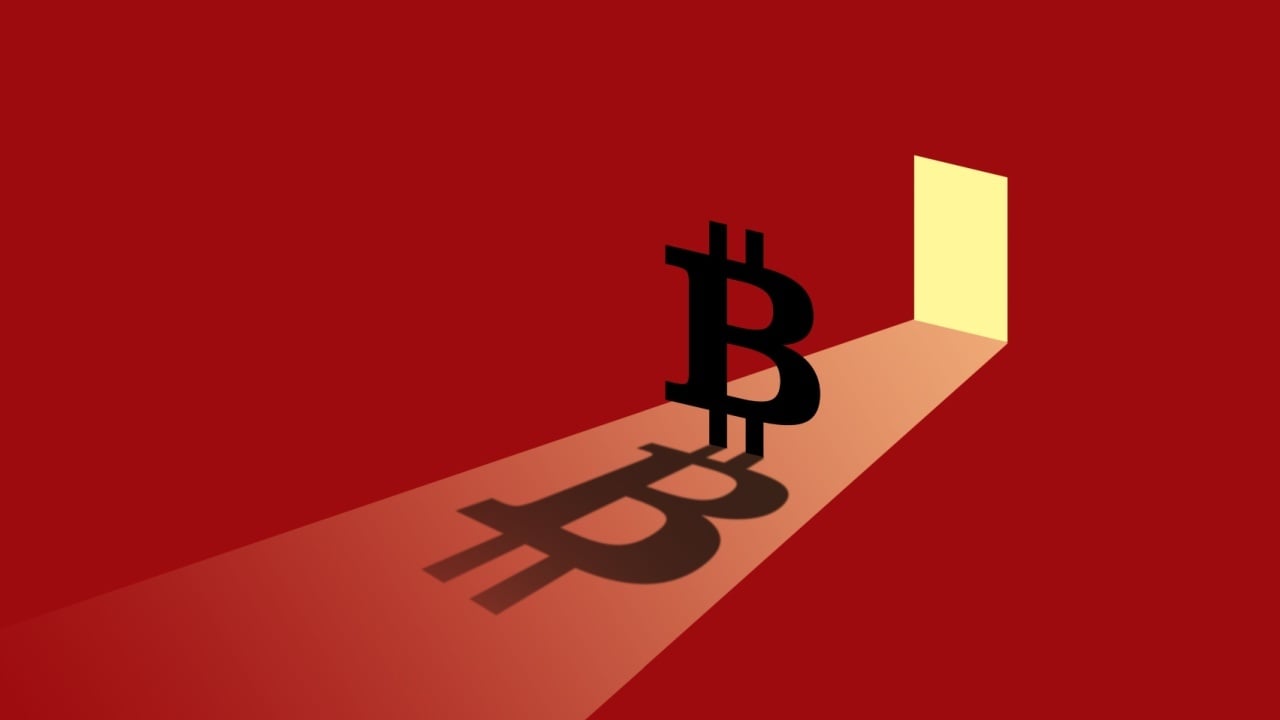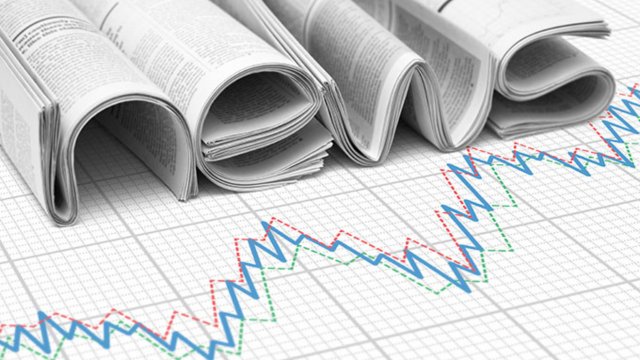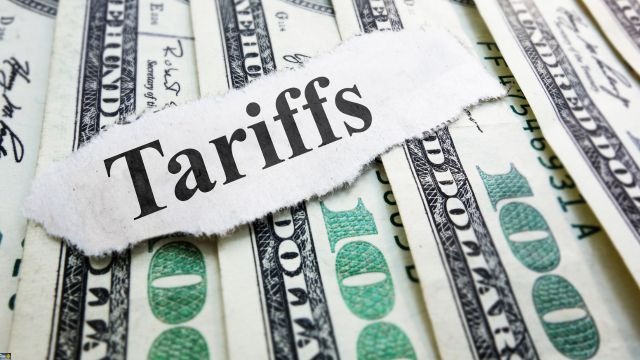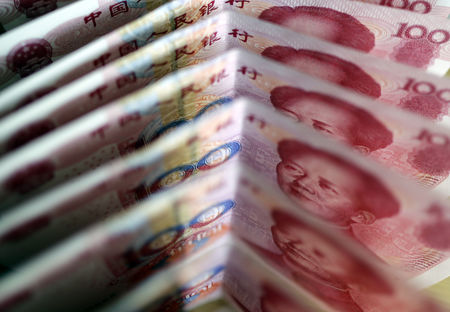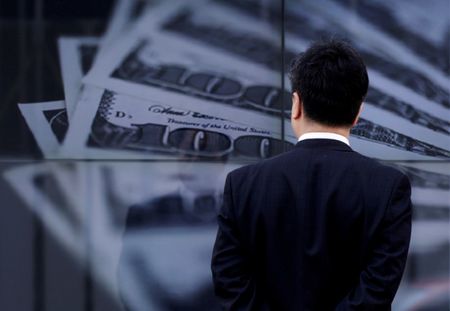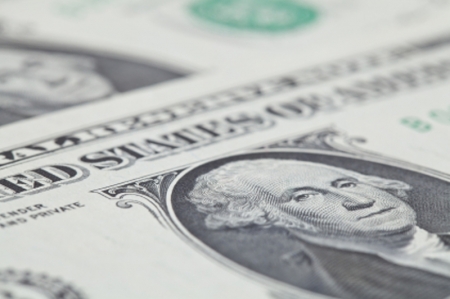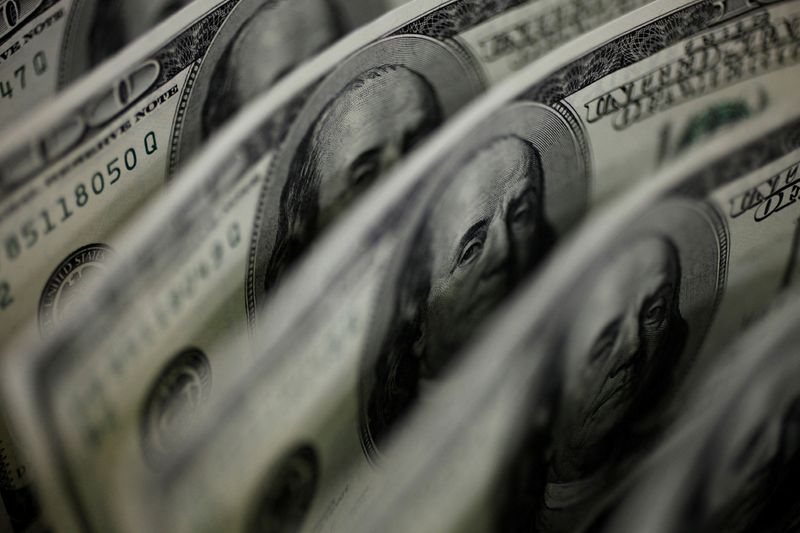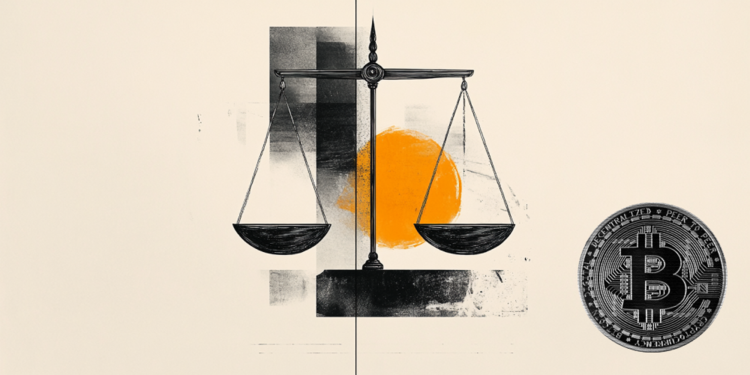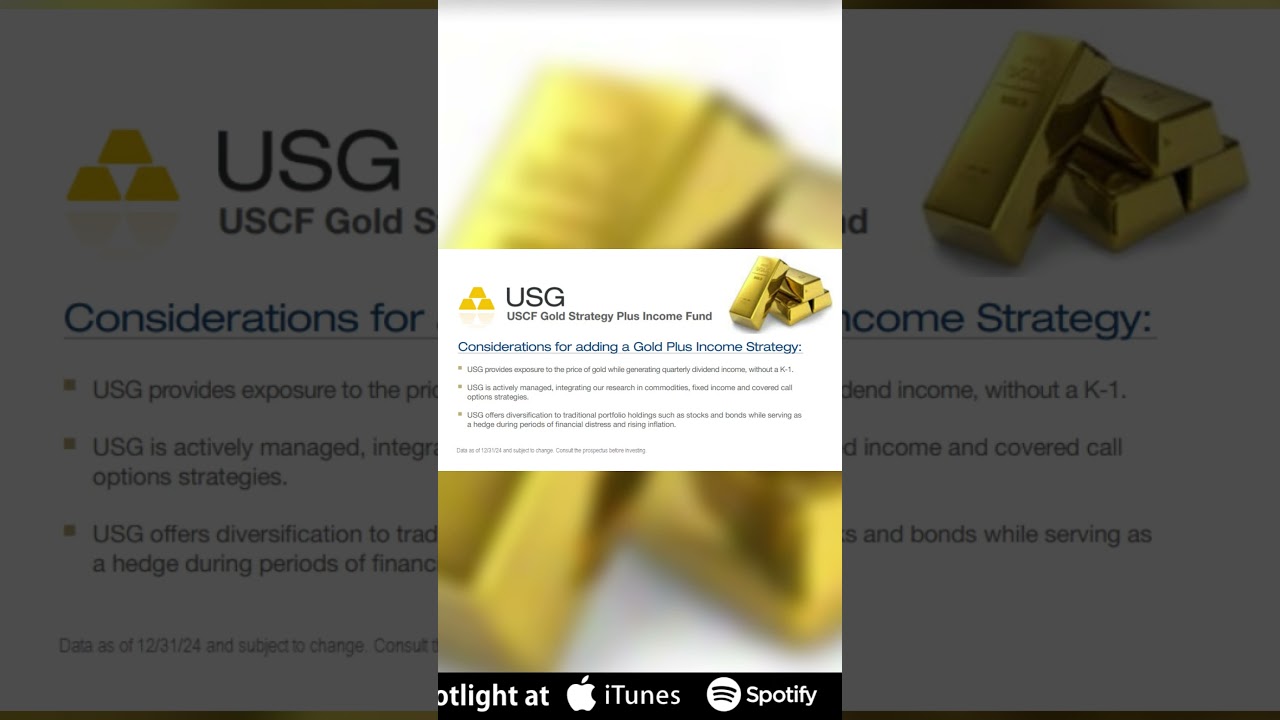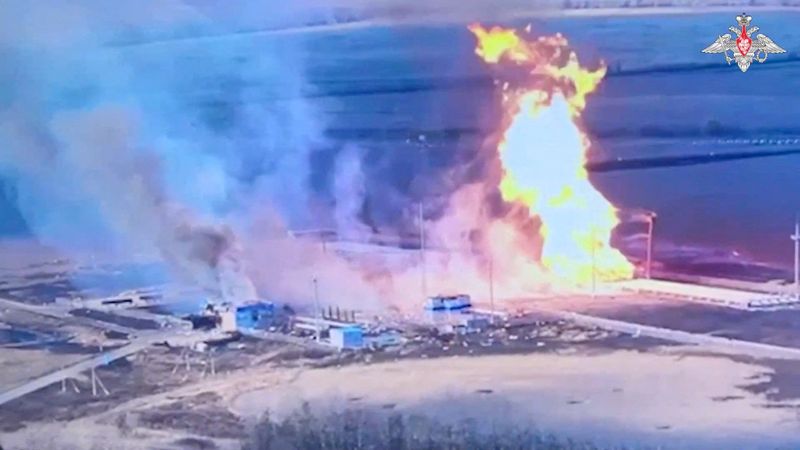Legendary fund manager sends blunt 9-word message on stock market tumble
Here's what could happen to stocks next.
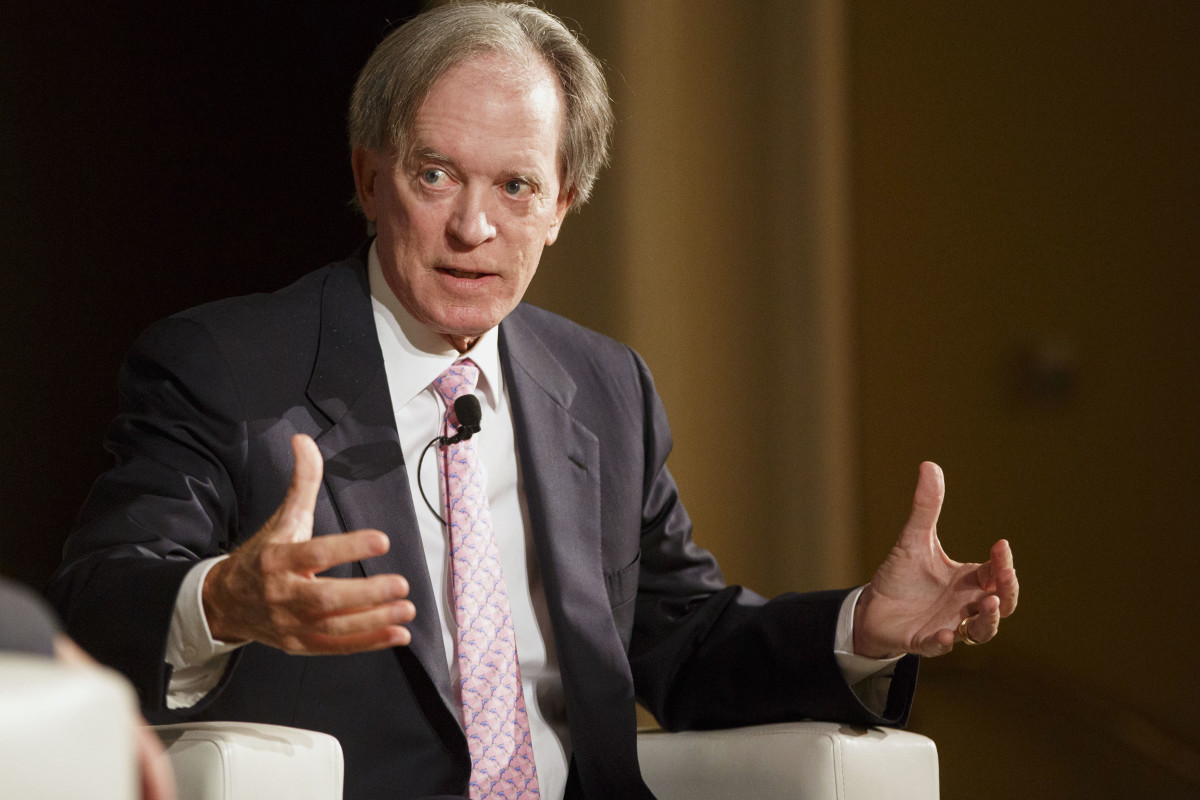
The stock market fell significantly after President Trump announced widespread tariffs on April 2. The so-called “Liberation Day” announcement included tariff rates higher than hoped, forcing investors to reset expectations for the U.S. economy and corporate earnings.
Given recent data, a potential slowdown in the U.S. economy may already be underway, and the risk that tariffs could push us into an outright recession casts a long shadow over stocks, given that stock prices' valuation is largely determined by future expectations for revenue and profit growth.
Related: Billionaire Michael Bloomberg sends hard-nosed message on economy
Historically, steep sell-offs like we’re witnessing in the S&P 500 and Nasdaq Composite, which were down 17% and 22% early on April 4, respectively, from their January highs, create opportunities for risk-tolerant investors to ‘buy the dip.’
The potential that investors go bargain hunting has caught the attention of veteran Wall Street bond manager Bill Gross. Gross has been navigating markets since 1971, and he co-founded Pacific Investment Management Co, or PIMCO, a massive firm with $2 trillion under management. He formerly managed over $270 billion via PIMCO’s Total Return Fund, earning him the “Bond King” nickname.
Gross has seen a lot over his 50-year career, and he offered a blunt message about the stock market this week.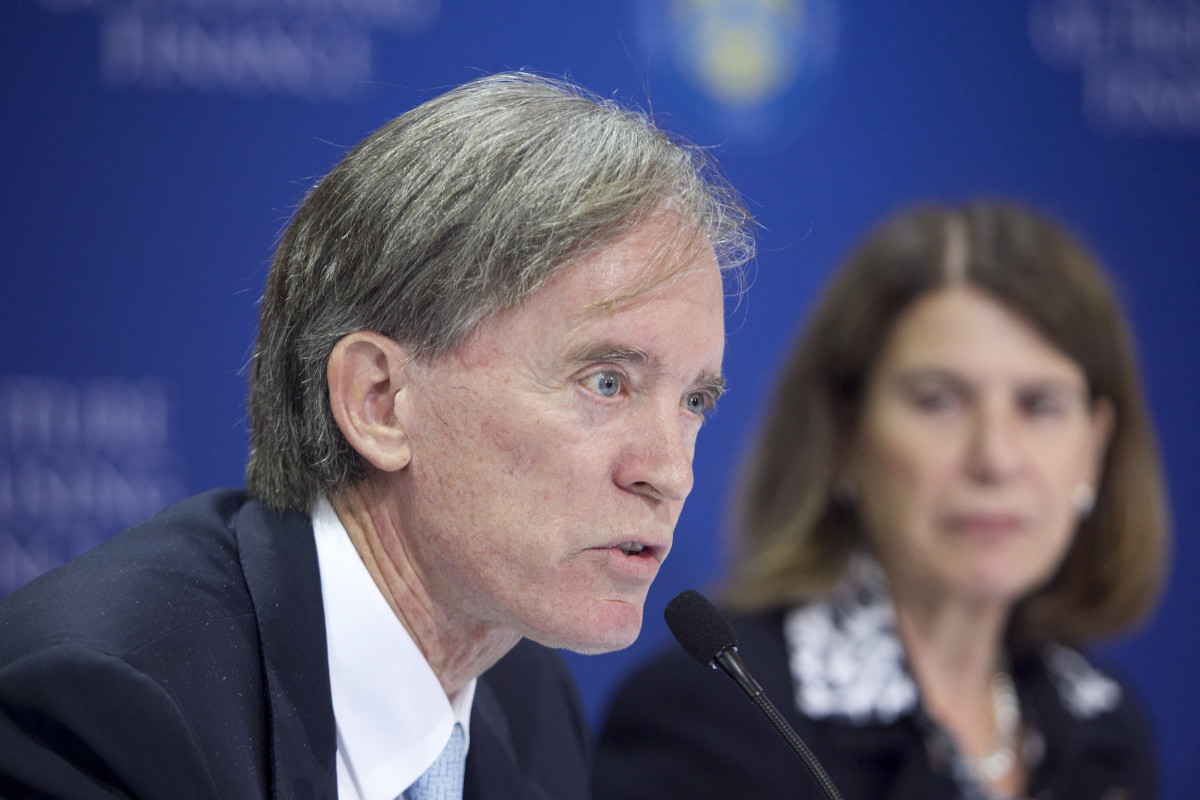
Is the Federal Reserve behind the curve yet again?
The Federal Reserve has a dual mandate to target low inflation and unemployment, two often contrary goals that can leave the Fed behind the curve when it comes to shifting monetary policy.
For example, raising interest rates slows economic activity, crimping inflation. However, it also leads to layoffs, which we're currently experiencing.
Related: Jim Cramer offers blunt one-word reaction to 20% tariffs
After incorrectly predicting in 2021 that inflation would be transitory, Fed Chairman Jerome Powell eventually enacted the most restrictive and hawkish interest rate hikes since Fed Chair Paul Volcker fought back inflation in the early 1980s.
However, delaying the inflation fight contributed to 8% inflation in 2022. While inflation has since retreated, it is cumulative, so the damage associated with hesitancy is still being felt.
A weakening job market partly caused by higher rates keeping a lid on economic activity prompted the Fed to cut rates in the fourth quarter. However, inflation has crept higher to 2.8% in February from 2.4% in September, leading the Fed to press pause further cuts.
Unfortunately, pausing hasn't helped revive job growth. According to the Bureau of Labor Statistics, the unemployment rate in February totaled 4.2%, up from 3.5% as recently as 2023.
And 275,000 Americans lost their jobs in March, according to Challenger, Gray, & Christmas, partly because of Department of Government Efficiency (DOGE) job cuts. The number of layoffs grew an eye-popping 205% year over year. It was the biggest month for layoffs since Covid cratered the economy in 2020.
What happens next to the economy is uncertain, but increasing unemployment and rekindled inflation isn't a great recipe. Moreover, President Trump's tariff tussle risks fueling inflation's fire, and given consumers are already cash-strapped, it may take a big toll on corporate profit and earnings growth.
Bill Gross throws cold water on 'buy the dip' mantra
Bill Gross's long-time Wall Street experience means that he's seen many market pops and drops, including the Nifty 50, skyrocketing inflation in the 1970s, the S&L crisis in the late 80s and early 90s, the Internet boom and bust, the Great Recession, Covid, and the 2002 bear market.
In short, Gross has been around the block, making his take on markets this week particularly worrisome.
Related: Fed official revamps outlook on U.S. economy amid tariff turmoil
"Investors should not try to ‘catch a falling knife," wrote Gross bluntly in an email to Bloomberg.
Buying the dip in the S&P 500 has been a winning strategy historically, but the pain endured while stocks find their bottom can be hard to withstand. And it can take years to recover losses. The situation is worse for individual stocks, which may never get back to their previous highs (case in point: Cisco Systems still trades below its 1999 peak).
"This is an epic economic and market event similar to 1971 and the end of the gold standard except with immediate negative consequences,” said Gross.
In the early 70s, a collection of 50 leading stocks became regarded as "one decision" stocks - buy only. Money was concentrated within them, setting up a significant market drop when they peaked in 1972. Sound familiar?
It's a bit unclear what will happen next. Fed Chair Powell admitted that he thinks the tariff impact will be worse than previously forecast, perhaps setting up rate cuts again. Meanwhile, President Trump is on the airwaves pressing for Powell to cut rates—a strategy that hasn't worked in the past.
Perhaps the recent market drop will encourage negotiations that lower tariffs, easing their impact. But that remains to be seen, and Gross isn't convinced.
“Trump can’t back down anytime soon,” said Gross. “He’s too macho for that.”
Related: Veteran fund manager unveils eye-popping S&P 500 forecast





